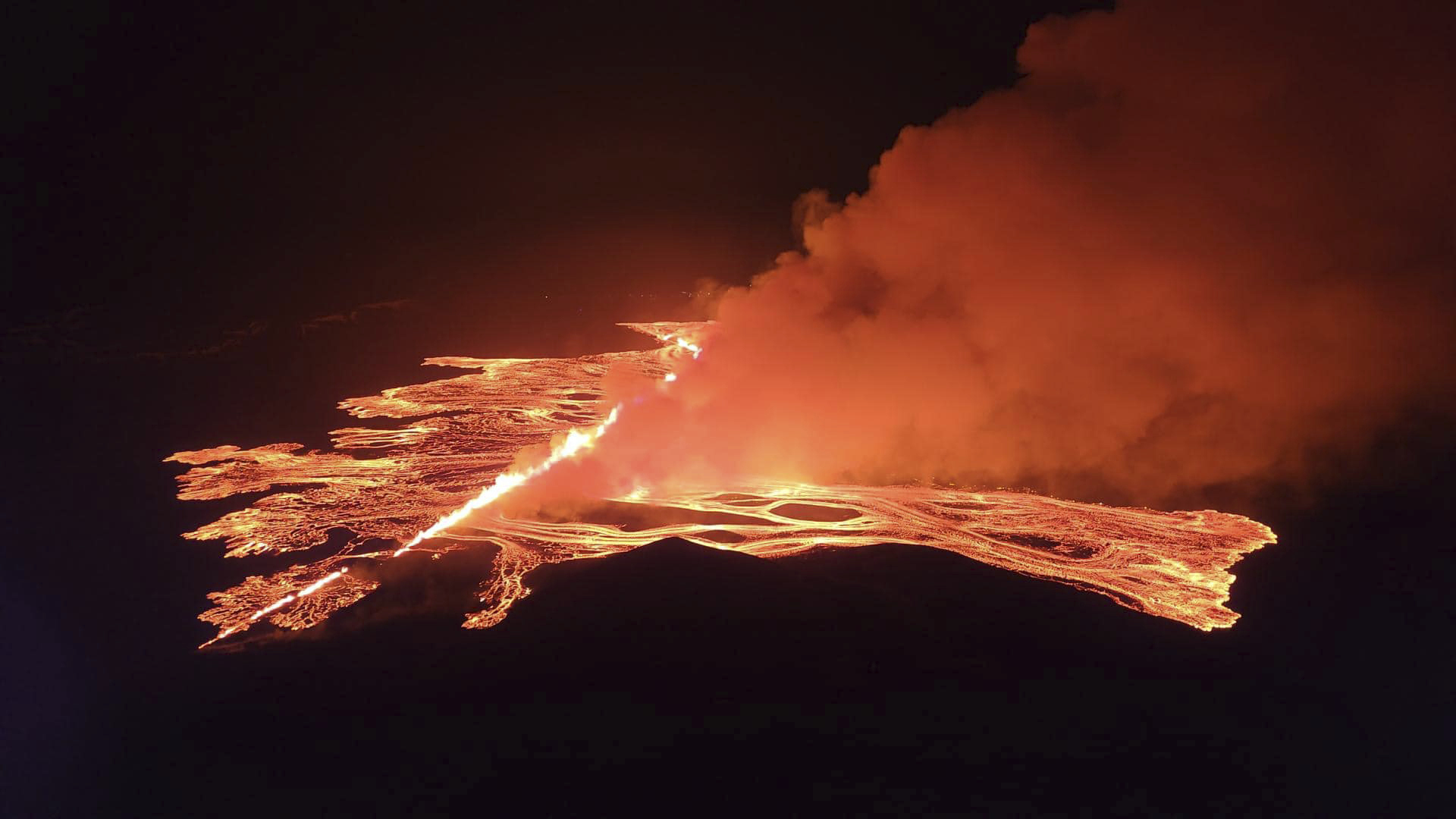In Turkey’s election, voters choose between Erdogan and Kilicdaroglu
The race is being closely watched around the world. Kilicdaroglu has promised to usher Turkey, a NATO member, into a new era by revitalizing democracy after years of government repression and refreshing ties with Turkey’s allies in the West. For his part, Erdogan has tried to highlight the strides Turkey took under his rule, as a country modernized by megaprojects like bridges and airports and as a global power that produced military weapons sought by foreign governments.
Long lines were seen at polling stations in Istanbul, Turkey’s largest city, where Erdogan voted Sunday morning. Kilicdaroglu cast his ballot in Ankara, the capital, joined by the city’s popular mayor. If neither candidate captures more than 50 percent in the voting Sunday, a runoff will be held on May 28.
Polls closed at 5 p.m. local time. Canan Kaftancioglu, a senior member of Kilicdaroglu’s party, said they expected “record” participation in Istanbul, of more than 90 percent of eligible voters. “There is information that this is the case all over Turkey,” she said, adding that they were waiting for ballots to be counted. The voting had occurred largely without incident, except for what she said were minor, individual cases.
Outside a polling station in the Istanbul neighborhood of Kurtulus, Garip Cicek, a 48-year-old security guard, said he was waiting “impatiently” for the evening’s results. “It’s important for my nation,” he said. He was voting for Erdogan, he said, because he supported the president’s development of the defense industry.
“This is a matter of pride,” he said. During Erdogan’s 20 years in power, he added, “many things” had been accomplished, including the recent unveiling of the first domestically produced electric car.
“The result is clear,” he said, predicting an Erdogan win. “With God’s will, we can stay where we are.”
Another voter in the neighborhood was just as convinced that Kilicdaroglu would prevail and that Turkey could not remain as it was. “I haven’t felt this excited or happy in such a long time,” said Ayse Kolikpinar, 33.
Sunday’s vote was like a “referendum” for Turkey, she said: “Either we choose the Republic or a one-man regime.”
The trauma of the earthquakes in Turkey and neighboring Syria ensured a subdued run-up to the election, as Erdogan toured a string of devastated cities, asking for forgiveness and pledging to rebuild. Then his tone shifted, as polls showed the race was too close to call, or that Erdogan was trailing. In recent weeks, he has savagely attacked Kilicdaroglu and the opposition, accusing them of being backed by “terrorists” or Western powers, in comments that many saw as a desperate turn for the president, known for effortlessly outflanking weaker rivals.
On Saturday, Erdogan accused the United States of trying to interfere in the election. “Biden instructed, ‘We need to bring down Erdogan,’” he said during a speech in Istanbul. “Tomorrow, the ballot boxes will give Biden an answer, as well.”
Erdogan, who rose to power as an Islamist politician, commands a loyal base of supporters, including Muslim conservatives whose rights and place in public life he has championed. Several years ago, Erdogan struck an alliance with a far-right party, ensuring his political survival. But some of the president’s supporters have wavered, put off by his failure to solve Turkey’s economic woes, including skyrocketing inflation, and his steady accumulation of power over virtually all the levers of the state.
Erdogan ended his campaign Saturday night with prayers at the Hagia Sophia, the Istanbul landmark that Erdogan converted in 2020 from a museum into a mosque, to the delight of his pious supporters.
Kilicdaroglu, a soft-spoken former bureaucrat who lacks Erdogan’s charisma, has delivered his messages of change to Turkey’s public through videos posted on Twitter and other social media platforms to evade the government’s stranglehold on the news media. On Thursday, a third-party candidate, Muharrem Ince, withdrew from the election, potentially providing a further boost to Kilicdaroglu.
In a tight race, Erdogan’s penchant for political survival above all else — and comments by some of his loyalists — has raised questions about the fairness of the election and whether the president will accept the results. But few in Turkey, where elections are held almost sacred, think he would try to cancel a vote, even one that resulted in his defeat.
“This is a very silly question,” the president said in a nationally televised interview with journalists Friday. “We came to power in Turkey through a democratic way. We came to power with the trust of our people. Just as we came to power with the favor of our people, that is, if our nation makes a different decision, we will do exactly that, whatever the necessity of democracy. There is nothing else to do.”
Despite such assurances, there have been accusations of election tampering, including a claim by Kilicdaroglu on Thursday on Twitter that Russia was behind “montages, conspiracies, deepfake content and tapes,” he wrote, without providing evidence. Russia has denied the claims.
A statement by Twitter on Saturday that said the social media company had taken “action to restrict access to some content in Turkey” in response to what it said was a “legal process” and an effort to “ensure Twitter remains available to the people of Turkey.” In a separate tweet, Twitter’s owner, Elon Musk, suggested the request to restrict content had come from Turkey’s government and said he would post the request.
The Turkish government has throttled access to social media sites in the past, including during the recent earthquakes, according to monitoring groups.
The string of cities in southern Turkey crushed by the earthquakes were being closely watched Sunday for indications of voter turnout, in a region where hundreds of thousands of people were displaced. In Antakya, one of Turkey’s most devastated cities, a 62-year-old contractor returned with his family to vote Sunday, driving from the coastal Mediterranean city of Mersin, about three hours away, where they had found temporary shelter.
In Antakya’s Elektrik neighborhood, the contractor, Mehmet, stopped at the site of his former apartment building and began searching what remained of the rubble. He said he had reinforced the foundation of the building himself. It had withstood the earthquakes but was left uninhabitable after neighboring buildings fell onto it.
Immediately after the earthquakes, the family applied to stay in a tent or container nearby, but Mehmet—who declined to give his last name for fear of the current political climate—said nothing came of it. “For the past three months, we’ve been ruined, and nobody has reached out to us,” he said.
He and his family members — including his 87-year-old diabetic mother and his wife, who has a debilitating hormonal disorder called Addison’s disease — eventually found shelter in the home of a friend in Mersin. But Mehmet described the arrangement as temporary and doesn’t know what comes after. It’s hard, he said, to “see a future for myself.”
Mehmet called the earthquake relief effort in Antakya a missed opportunity for Erdogan. “If he really reached out to us, he could have won the people’s hearts here, but he didn’t,” Mehmet said. “If you try to heal people’s wounds, if you reach out to them in their time of need, people will embrace you. But if you treat people like they’re from the ‘other’ side, they’ll see you the same way, too.”
The family voted for Kilicdaroglu.
Oztaskin reported from Antakya, Turkey.
Check out our Latest News and Follow us at Facebook
Original Source






